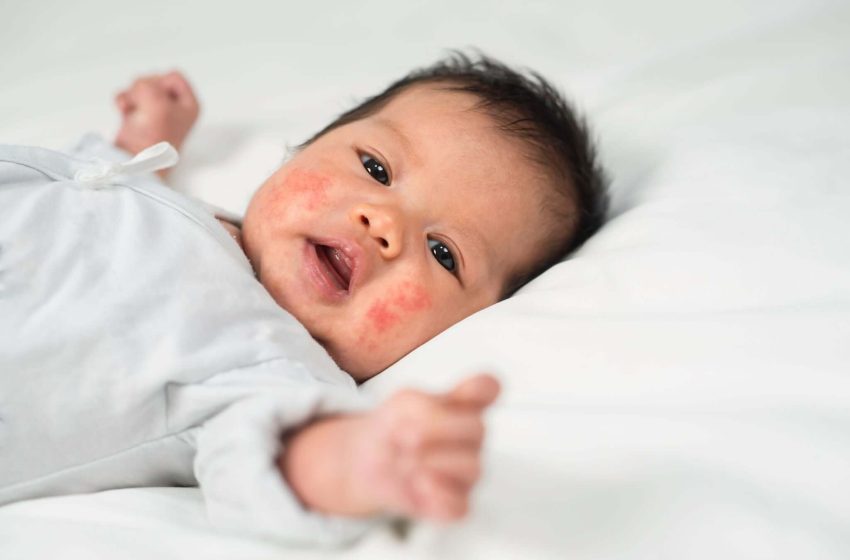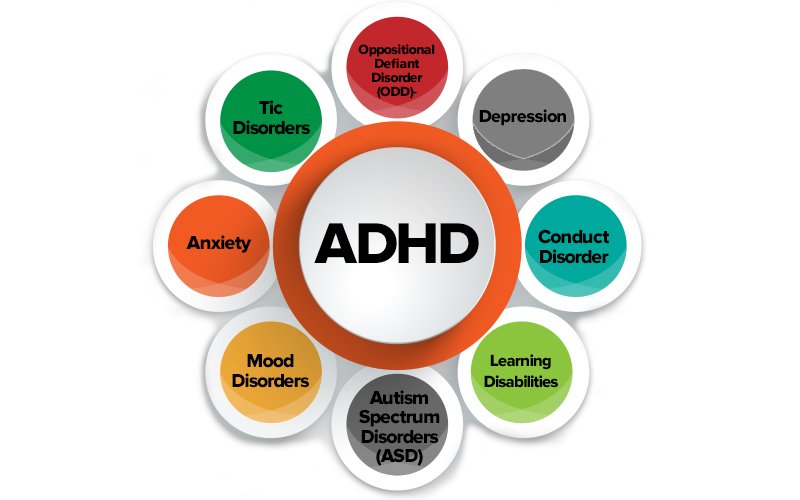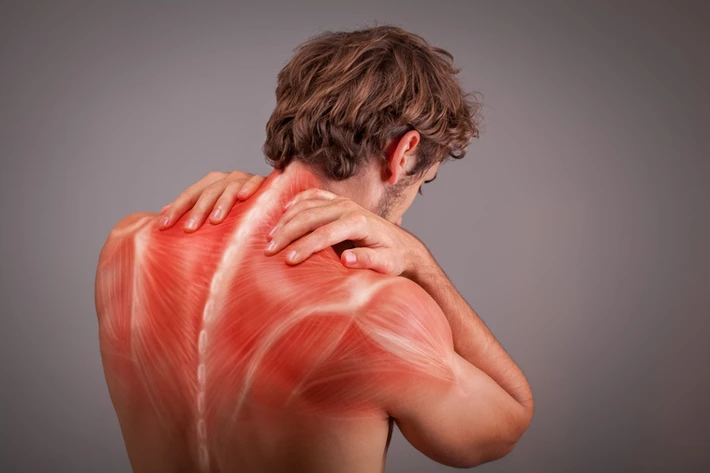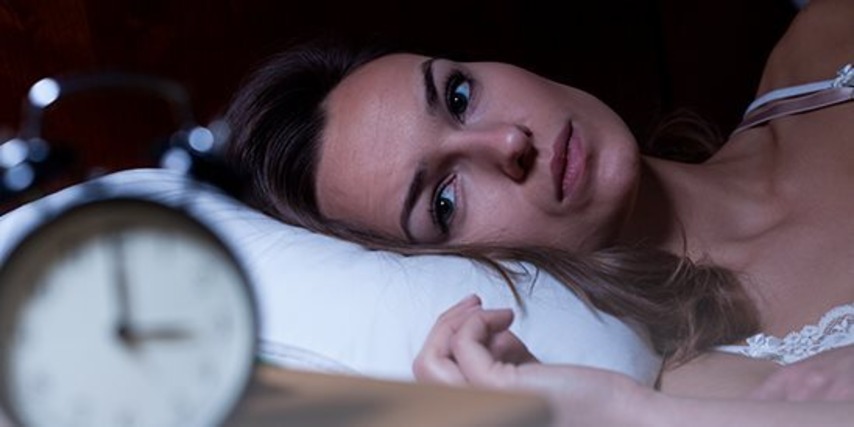Baby Eczema Vs. Acne: How to Identify Each Condition

Introduction
Understanding your baby’s skin conditions is not just about navigating a complex maze but empowering yourself to provide the best care for your little one. With so many different issues that can arise, it’s crucial to properly diagnose and treat them to ensure your baby stays healthy and happy. Two common conditions that often confuse are baby eczema and acne. Let’s dive into each condition, explore their differences, and learn how to manage them effectively.
What is Baby Eczema?
Definition and Overview
Baby eczema, or atopic dermatitis, is a chronic skin condition that causes dry, itchy, and inflamed skin. It usually appears within the first six months of life and can persist into childhood.
Common Symptoms
- Red, inflamed skin patches
- Intense itching
- Dry, scaly skin
- Oozing or crusting in severe cases
Causes and Triggers
While the exact cause of eczema is unknown, it’s believed to be a combination of genetic and environmental factors. Common triggers include:
- Allergens (like pollen, dust mites)
- Irritants (such as soaps detergents)
- Weather changes
- Stress
What is Baby Acne?
Definition and Overview
Baby acne, also known as neonatal acne, typically appears on a baby’s face within the first few weeks after birth. The good news is that it’s generally harmless and tends to clear up independently, relieving parents.
Common Symptoms
- Small red or white bumps
- Pimples on the cheeks, forehead, and nose
- Slightly rough skin texture
Causes and Triggers
The exact cause of baby acne is unclear, but it’s thought to be related to maternal hormones passed to the baby before birth. It’s not caused by poor hygiene or any specific foods.
Differences Between Baby Eczema and Acne
Symptom Comparison
- Eczema: Red, inflamed, itchy patches.
- Acne: Small red or white pimples without intense itching.
Age of Onset
- Eczema: Can start as early as six months.
- Acne: Typically appears within the first few weeks of life.
Affected Areas
- Eczema: Commonly affects cheeks, scalp, and joints.
- Acne: Primarily affects the face, especially the cheeks, forehead, and nose.
Diagnosing Baby Eczema
When to See a Doctor
If your baby has persistent, itchy, or inflamed skin, remember, you’re not alone. It’s time to seek the support and guidance of a pediatrician who can help you manage your baby’s skin condition effectively.
Diagnostic Tests
Diagnosis is usually based on a physical examination and medical history. In some cases, allergy testing may be recommended.
Identifying Triggers
A diary of your baby’s activities and exposures can help identify and avoid triggers.
Diagnosing Baby Acne
When to See a Doctor
Consult a pediatrician if the acne doesn’t improve over several months or seems to be causing discomfort.
Diagnostic Tests
Typically, baby acne is diagnosed through a physical examination. No special tests are needed.
Identifying Triggers
Since baby acne is primarily hormonal, there aren’t specific triggers to identify.
Treating Baby Eczema
Home Remedies
- Moisturizing frequently
- Using mild, unscented soap
- Keeping nails short to prevent scratching
Medical Treatments
- Prescription creams (like corticosteroids)
- Antihistamines for severe itching
Long-term Management
Managing eczema is a team effort between you and your baby. It involves a consistent skincare routine and avoiding known triggers. Your vigilance and care can significantly impact your baby’s comfort and health.
Treating Baby Acne
Home Remedies
- Gently washing the baby’s face with water
- Avoiding oily or greasy skincare products
Medical Treatments
Most cases of baby acne do not require medical treatment and are cleared up independently. In rare cases, a doctor might prescribe a mild topical medication.
Long-term Management
Since baby acne usually resolves itself, long-term management isn’t necessary.
Preventing Baby Eczema
Daily Skincare Routine
- Regular moisturizing
- Bathing with gentle products
Environmental Factors
- Keeping the baby’s environment free from allergens
- Using a humidifier in dry climates
Diet and Nutrition
Breastfeeding and avoiding certain foods may help but always consult your pediatrician.
Preventing Baby Acne
Daily Skincare Routine
- Simple, gentle cleansing
Environmental Factors
- Avoiding exposure to harsh chemicals
Diet and Nutrition
No specific dietary changes are needed as baby acne is not food-related.
Common Myths About Baby Skin Conditions
Myth-Busting Eczema
- Myth: Eczema is contagious.
- Fact: Eczema is not infectious.
Myth-Busting Acne
- Myth: Baby acne is caused by poor hygiene.
- Fact: Baby acne is related to maternal hormones, not cleanliness.
When to Seek Professional Help
Signs That Require Immediate Attention
- Severe itching or discomfort
- Signs of infection (e.g., oozing, crusting)
- No improvement in home care
Preparing for a Doctor’s Visit
- Note down all symptoms
- Keep a log of potential triggers
Living with Baby Eczema
Emotional and Social Impact
Managing eczema can be challenging for both the baby and the parents. Emotional support and education are crucial.
Support and Resources
Joining support groups and accessing reliable resources can help families cope better.
Living with Baby Acne
Emotional and Social Impact
Though less severe than eczema, baby acne can still cause parental concern.
Support and Resources
Reassurance from healthcare providers and connecting with other parents can be beneficial.
Conclusion
Understanding the differences between baby eczema and baby acne is crucial, but it’s equally important to remember that you’re not alone in this journey. Always consult a pediatrician for concerns and follow recommended care guidelines to ensure your baby’s skin remains healthy.
FAQs
Can baby eczema turn into acne?
No, baby eczema and acne have different causes and symptoms.
Are there any specific foods that can trigger baby eczema or acne?
While certain foods may trigger eczema, no specific foods are linked to baby acne.
Is it safe to use over-the-counter creams for baby eczema and acne?
Always consult a pediatrician before using over-the-counter creams on your baby’s skin.
How long does baby acne usually last?
Baby acne typically clears up within a few weeks to months.
Can baby eczema be completely cured?
There is no cure for eczema, but it can be managed with proper care and treatment.




